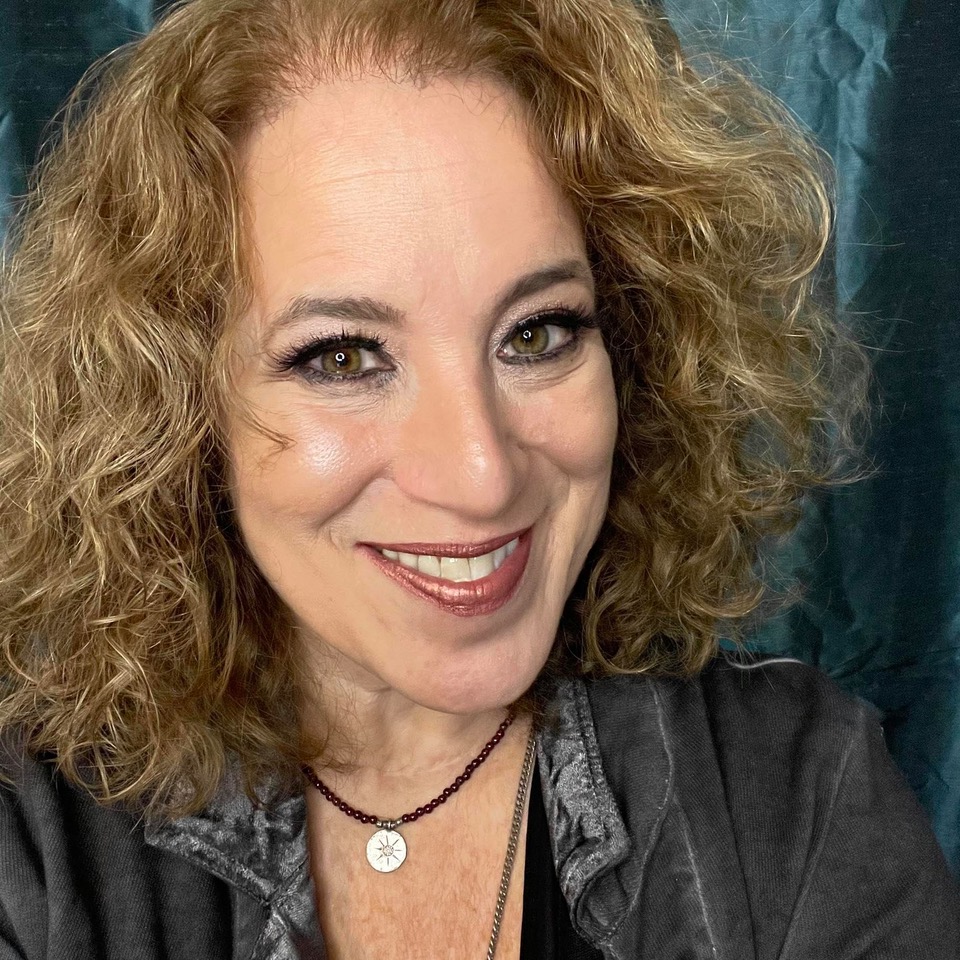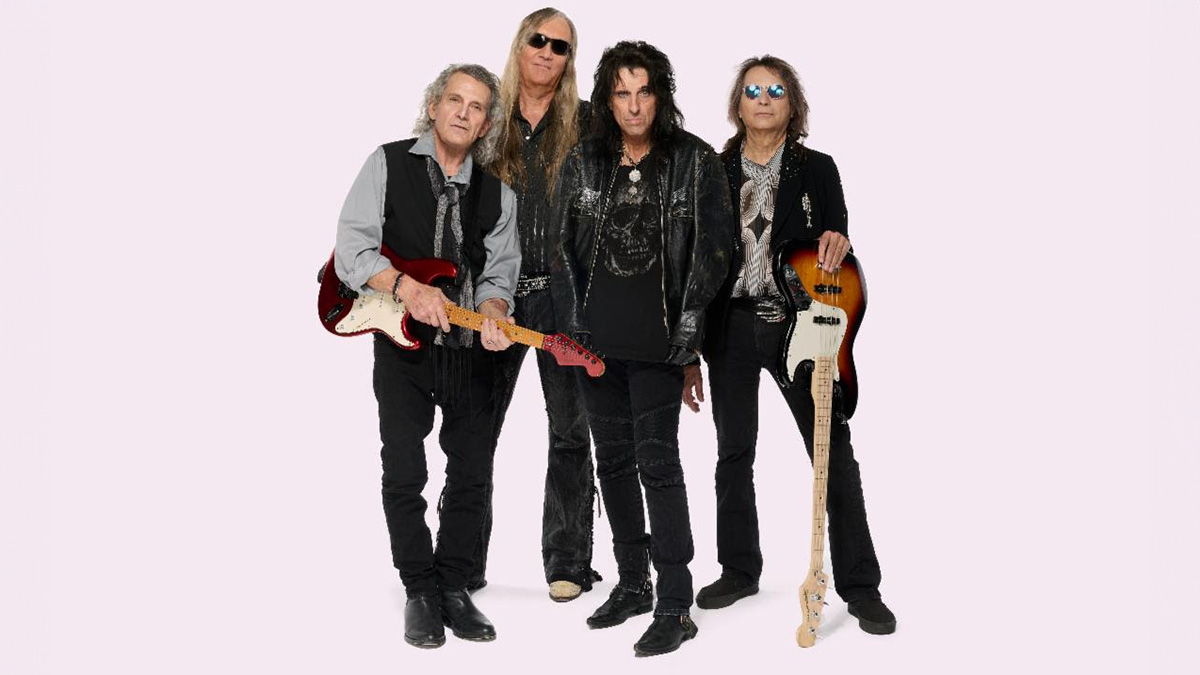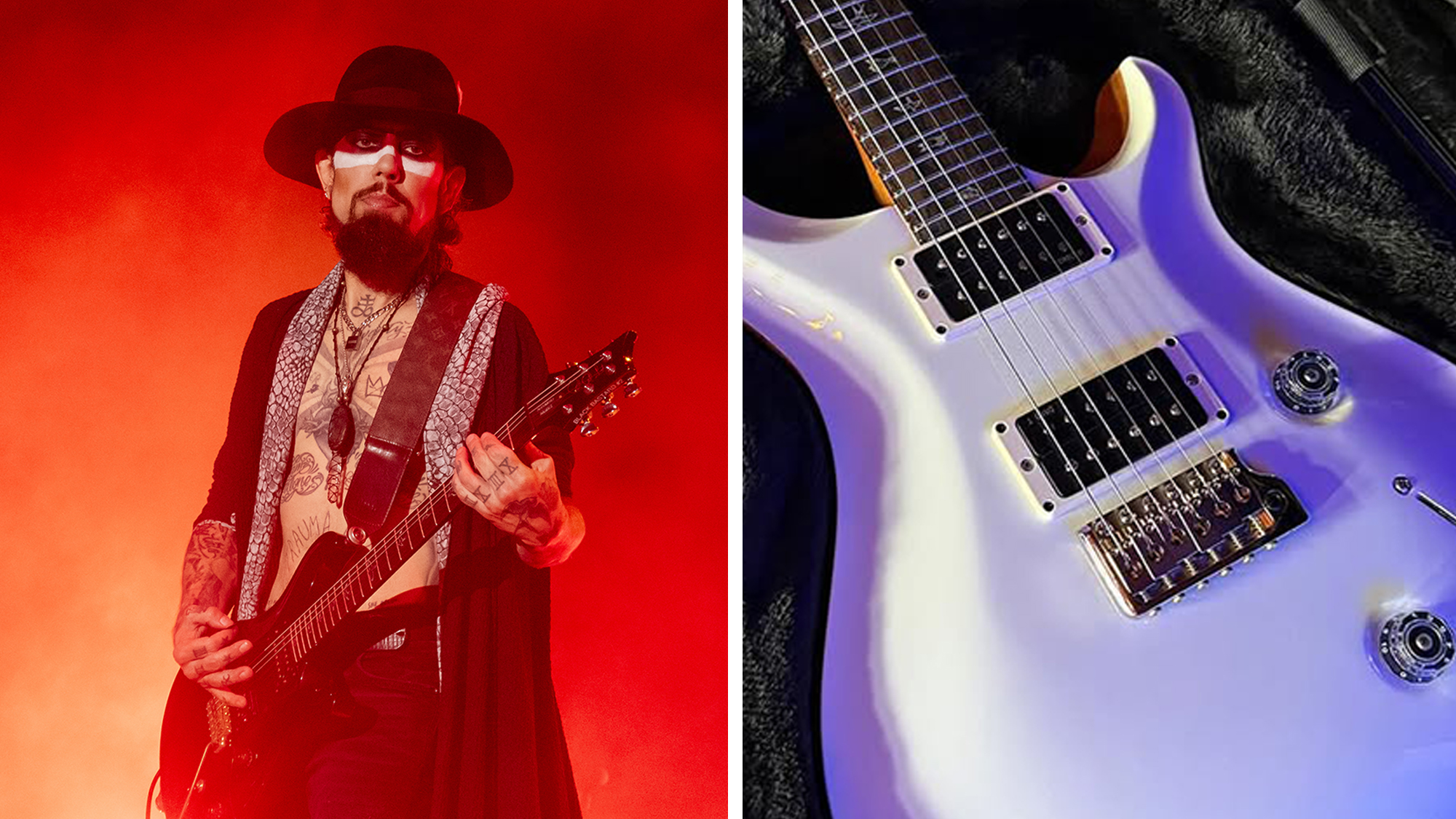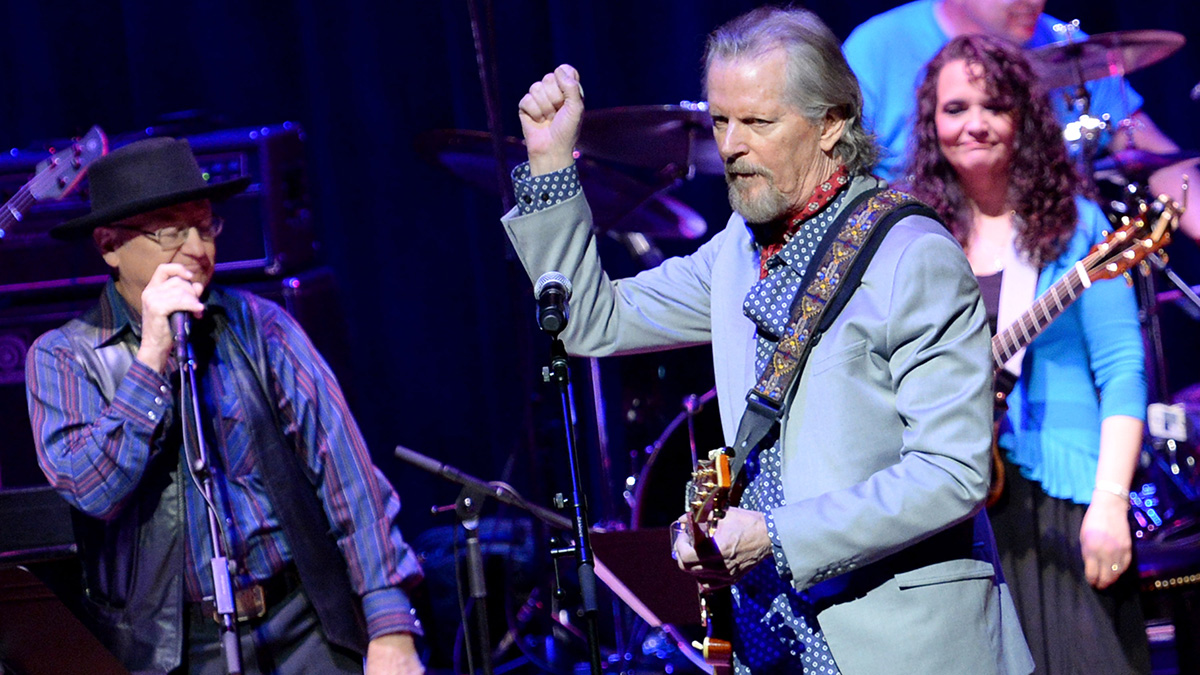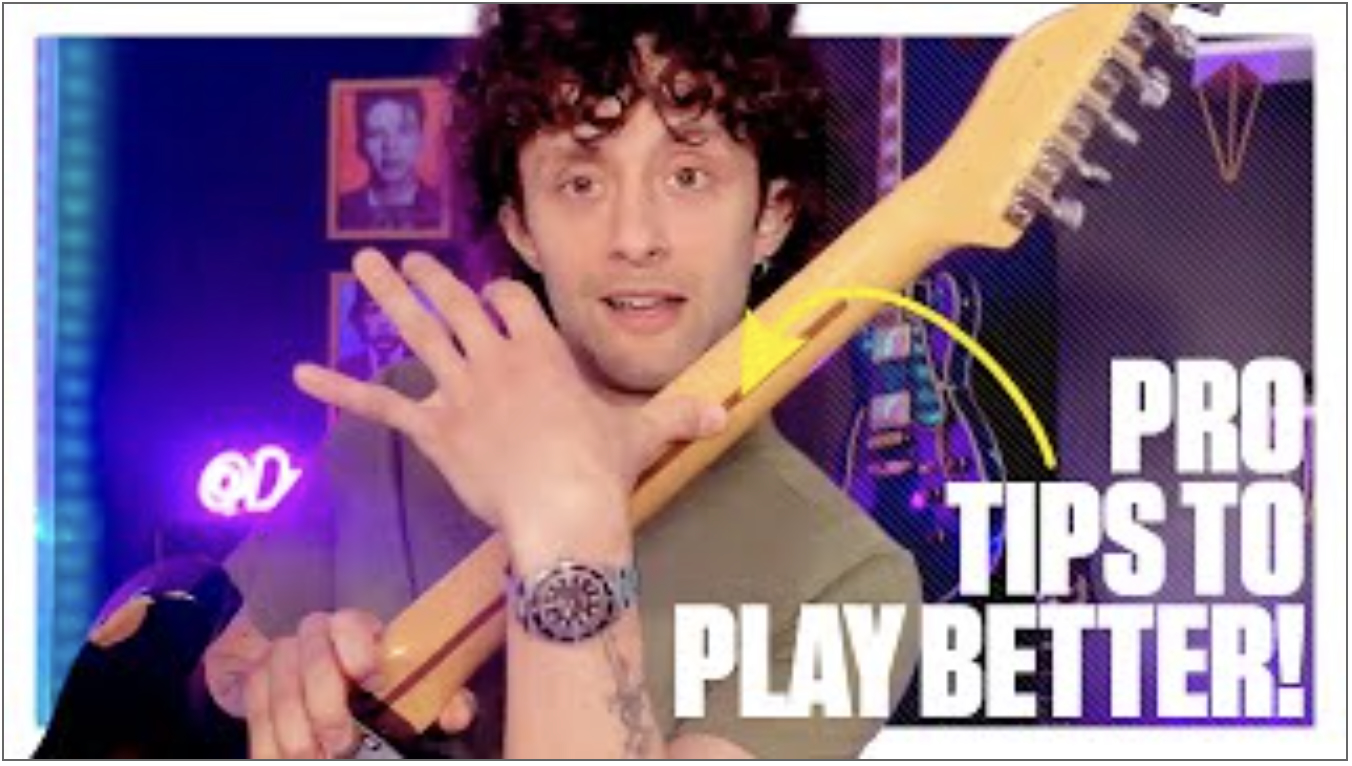Interview: Anita Robinson of Viva Voce
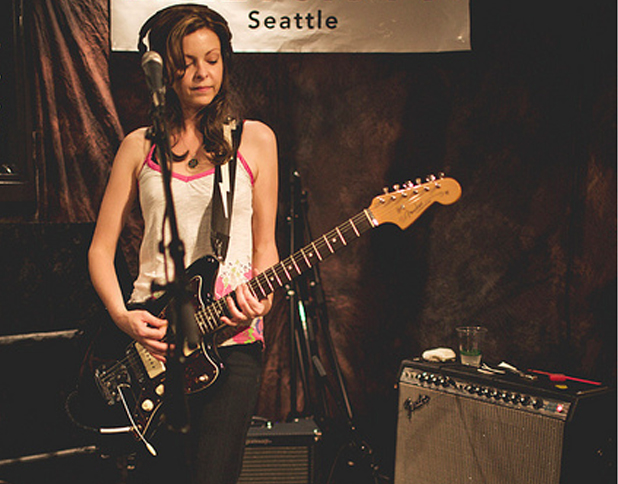
If you Google “quirky kick-ass two-piece modern rock band,” you won’t see Viva Voce on the list (Pronounce it VEEvah VOchay). But you should! In fact, that search comes up empty. But that’s only because Viva Voce’s unique blend of singable, irreverent indie retro folk rock just can’t be categorized.
And with songs ranging from reflective ballads to alien inspired anthems … what’s the point of trying?
And anyhow, this Portland-based husband and wife duo of Kevin and Anita Robinson doesn’t care much for labels, so that suits them just fine. In the studio they each play multiple instruments, tracking with a raw, spontaneous feel.
And on stage they manage to execute those recordings with a passionate energy, delivering a singular experience with each performance. With Kevin manning the drums while also playing acoustic guitar (no kidding!) and singing, and Anita playing lead guitar while singing ethereal lead vocals, their live sound is surprisingly fat and ballsy for just two players.
This critically acclaimed songwriting team has been together for well over a decade, writing and touring extensively with bands like The Shins and Jimmy Eat World. If you’re so inclined, you might even catch a tune or two of theirs on the TV show One Tree Hill. I caught up with Anita Robinson just a few days before the release of their latest effort, The Future Will Destroy You, now out on Vanguard Records.
I heard you grew up hanging out in the music store that your parents ran. What where some things you loved about that?
It really meant that I’ve always had this sense that I was an insider. You know, being behind the scenes and being able to see side of being a musician other people aren’t privy to. It felt like a privilege. It also kind of gave me a sense of extra confidence, I knew what it was like to be backstage, or warming up or bringing your guitar in to be repaired before going on tour, because a lot of local musicians used to come into our tour. I didn’t realize until later how valuable it was to see what it’s really like to be a musician.
Get The Pick Newsletter
All the latest guitar news, interviews, lessons, reviews, deals and more, direct to your inbox!
That must have been great for you! I know that, early on for me, especially as a woman and also as a novice, it was a bit intimidating to enter into music stores. You probably didn’t have that.
Yeah, totally. If you are already feeling like an outsider because a music store isn’t something that you’ve been in a lot, I can see how it would undermine your confidence and make you feel unwelcome. I have heard of that before from other female musicians that I’m friends with now, and I didn’t have that similar sort of story. But I can certainly empathize with them and am really glad that they stuck with it after having those negative experiences.
What was your first guitar that you really fell in love with?
Well, (laughs) I still have my first electric and acoustic guitars. The electric is an early ‘70s Gibson SG that is really unique and different, with a cool cherry sunburst. It has a lot of black plastic and little slider switches and mini humbuckers. So it’s just an unusual SG.
My dad surprised me with it on my 13th birthday and he put a Bigsby tremolo on it. And so those two things have always stuck with me the rest of my life whenever I select a guitar. I’m drawn to classic shapes. You know, the Gibson shape and the Fender shapes that you associate with the beginnings of rock and roll. And anything that can personalize the guitar is also important to me.
I’ve seen some videos of you playing with some not so typical instruments!
Yeah (laugh) exactly, I’m sure that’s both of my parents influence on me. The were not so interested in towing the line of the norm. And they were definitely encouraged me to be as unique as I wanted to be. I’m really grateful to them for that.
Viva Voce strikes me as pretty different in your lineup, how you perform, and even the experimental nature of your songwriting and recording.
We do seem to be the square pegs in whatever roster we are in, whether we are performing with other rock bands or not. It’s comforting not to have three exact same bands competing for crowds.
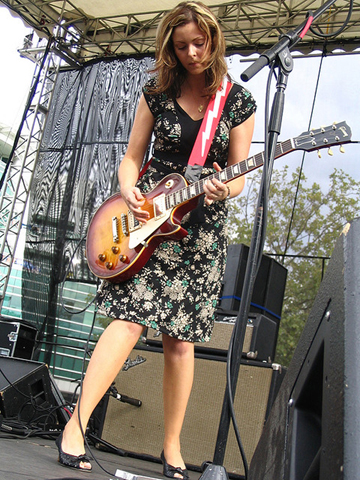
I was really amazed with how much sound you produced live with just two people. How do you achieve that?
We just really aren’t a typical band. We are more of mixed media artists, you know what I mean? We use the digital and analog realm to try to find the balance of harmony, and if there is not harmony and just dissonance, then maybe the dissonance sounds cool, too.
We write our own stuff; we record our own stuff. We tour very minimally often without crew at all. We just do everything and are a part of every asset of our music, from the artwork to the name of the record, the choice of the single.
The people that we work with are very indulgent with us. Since we have been this way, I guess we don’t ever feel that we will have to take a minimalist, garage-rock sort of approach to this because people want to see live exactly what they’re hearing. We just figured we’d make a way for them to hear live what they hear on the record, even though it’s the two of us.
For me as a guitar player I have to look at guitarists like Jimmy Page and David Gilmour and these guitar players that construct and orchestrate all of these guitar parts that work together to create this awesome whole. But then when they’re on stage they just compensate and find a way to make it work.
It’s not like anyone has ever walked away from a Led Zeppelin concert saying, “Man, if there was only just that one other guitar player to make sure that harmony happens.” But no, Jimmy Page made sure it was so badass that you didn’t think that. So I have to try to really step it up. And kind of just go a little crazy.
I love that you can think that way. You know, being experimental in the studio but then doing something special live.
It’s so exciting when you see a band do that. I saw Wilco here in Portland and I’m a huge fan of Nels Cline and what he’s brought to that band and their live show. And Jeff Tweedy’s an amazing guitar player, too, and they’re both rocking out with their Jazzmasters.
You know that when you hear your favorite song they are probably gonna rearrange it to where the ending is longer or it might have a bridge that didn’t exist on the record. They’re gonna take liberties with their music because it IS their music. So I feel it’s totally acceptable for us to do that. And actually I would be a little disappointed if I really loved a band and I saw them and they weren’t having fun with their own songs.
I feel like your sound has a retro vibe with a modern feel. Can you share what gear you use to accomplish that?
I started out with a Marshall half stack. I was thinking big, and it was totally fun and satisfying to play through a half stack. But unfortunately, with the way we tour, I don’t have the muscles to lift a half stack above my head or even out of a van on my own.
And I got so tired of asking someone to grab that other handle. So I decided to go another route and now I’ve been using vintage Fender amps, and that’s pretty much what I’ve been playing for the last 12 to 13 years. I have a ’65 Blackface Bassman head and cab that’s been my mainstay. But I’ve gotten to the point that I don’t like to travel with it so much.
And so I’m playing live with an early ‘70s Silverface Fender Super Reverb, and it’s really great. Obviously it feels a lot different than the Blackface. And I feel like I’ve gotten to the point that no matter the situation I can dial in the sound I want. I’ve really enjoyed going back and forth between the two of those.
I play Gibson guitars a lot. I really love my Les Paul and I use my ’78 Les Paul Custom. I used it a lot on the record, and also kept finding myself grabbing my husband’s Jazzmaster. After seeing Wilco play we were like, “Good God! Let’s get a Jazzmaster.” Fender started making these reissues that are really affordable and we got one. Honestly you just play it and it does exactly what you want it to do.
Do you use effects?
I really like the sound of using an octave effect right now. It seems really fresh to me. I don’t know why, I guess it’s because I listened to Bowie’s The Rise and Fall of Ziggy Stardust whenever we were writing and recording. And I love Mick Ronson’s playing. Just the way he sort of goes at it. He has those harmonies that are just so great, and I found myself leaning in that direction. So I use the octave pedal to give the feeling of those dueling harmony solos. And I think it worked pretty well.
You mentioned on your website that you chained amps together during the recording process.
Yeah I’m planning on taking pretty much exactly what we recorded with on the road. I used the Super Reverb and also an Ampeg Jet, which is a little combo that just screams. So I’m using two guitar amps now, which is something I’ve always wanted to do. Just routing certain effects to just the Ampeg. It’s real beefy and I think it can handle it. Some really choppy tremolo and some kind of out there phase. Hopefully it’ll make for a real big, balanced guitar sound.
Do you feel your guitar sound has evolved over the years?
I hope it has evolved. When you first start playing, you don’t really understand what the difference is – because you don’t know what you’re listening to – between, say, a solid-state amp and an all-tube amp or a combo with one speaker or a half stack with four 12-inch Celestions. But as you play and listen, you come to an understanding. Yeah, I would think that the tone I was achieving when I was 14 sitting on my bed playing through my Peavey Bandit 65 – even though it was inspiring to me and I thought it sounded great – I’d like to think that I’m really hitting the mark better now.
It’s a never ending process … Your taste changes, too, with every record you just have a different point of view. I’m just glad that I get to keep making records and that people keep coming to see us play. And we’ve been really fortunate to live that dream together.
See Viva Voce’s touring schedule and check out their brand new release, The Future Will Destroy You, at VivaVoce.com.
Check out this wacky, friend-made video of their new single, “The Future Will Destroy You”:
Laura B. Whitmore is a singer/songwriter based in the San Francisco bay area. A veteran music industry marketer, she has spent over two decades doing marketing, PR and artist relations for several guitar-related brands including Marshall and VOX. Her company, Mad Sun Marketing, represents 65amps, Acoustic Bass Amps, Agile Partners, Guitar World Magazine, and many more. Laura was instrumental in the launch of the Guitar World Lick of the Day app. She is the lead singer for the rock band, Summer Music Project. More at mad-sun.com.
Laura B. Whitmore is a music industry marketing veteran, music journalist and editor, writing for Parade.com, Guitar World, and others. She has interviewed hundreds of musicians and hosts the She Rocks Podcast. As the founder of the Women’s International Music Network, she advocates for women in the music industry and produces the annual She Rocks Awards. She is the Senior Vice President of Marketing for Positive Grid, making the world safe for guitar exploration everywhere! A guitarist and singer/songwriter, Laura is currently co-writing an album of pop songs that empower and energize girls.
“I knew the spirit of the Alice Cooper group was back – what we were making was very much an album that could’ve been in the '70s”: Original Alice Cooper lineup reunites after more than 50 years – and announces brand-new album
“Such a rare piece”: Dave Navarro has chosen the guitar he’s using to record his first post-Jane’s Addiction material – and it’s a historic build
